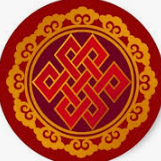Diverticulosis
-
Recently Browsing 0 members
- No registered users viewing this page.
-
Topics
-
Popular Contributors
-
Latest posts...
-
50
Relationship Dynamics: Ladyboys vs Women in Thailand?
Why do you assume a guy posting about having sex with a ladyboy is "enjoying life" more than the men laughing at them? -
70
Video Ex-Air Hostess Charlotte Lee Arrested for £1.5m Cannabis in Sri Lanka
The good news is she probably won't be taking any more selifies. Ever. -
9,769
Electric Vehicles in Thailand
I've been driving a Nissan March since 2014, so anything new should be better than I'm used to! -
50
Relationship Dynamics: Ladyboys vs Women in Thailand?
I'm pretty shocked that foreigners spend their time in Thailand watching videos of other foreigners and their ladyboy friends. Takes all sorts I guess... -
27
Report Thailand Eases Alcohol Laws Amid Concerns Over Safety Impact
I've been to Craft in Bangkok a couple of times. Interesting craft beers there and only B500+ a pint. Only ever had 1 or 2 each visit before switching to the B99 Chang. 🤪 -
27
Report Thailand Eases Alcohol Laws Amid Concerns Over Safety Impact
Craft beer is not expensive to produce, I brew my own and the cost per pint is cheap. Mango pale ale, 10-15 baht per pint Yorkshire bitter 15 baht per pint. The above is using simple malt extract beer kits ordered from UK or NZ So if I can do it, why can't breweries that have more efficient processes do it. The answer is greed.
-
-
Popular in The Pub
-






.thumb.jpeg.d2d19a66404642fd9ff62d6262fd153e.jpeg)




Recommended Posts
Create an account or sign in to comment
You need to be a member in order to leave a comment
Create an account
Sign up for a new account in our community. It's easy!
Register a new accountSign in
Already have an account? Sign in here.
Sign In Now